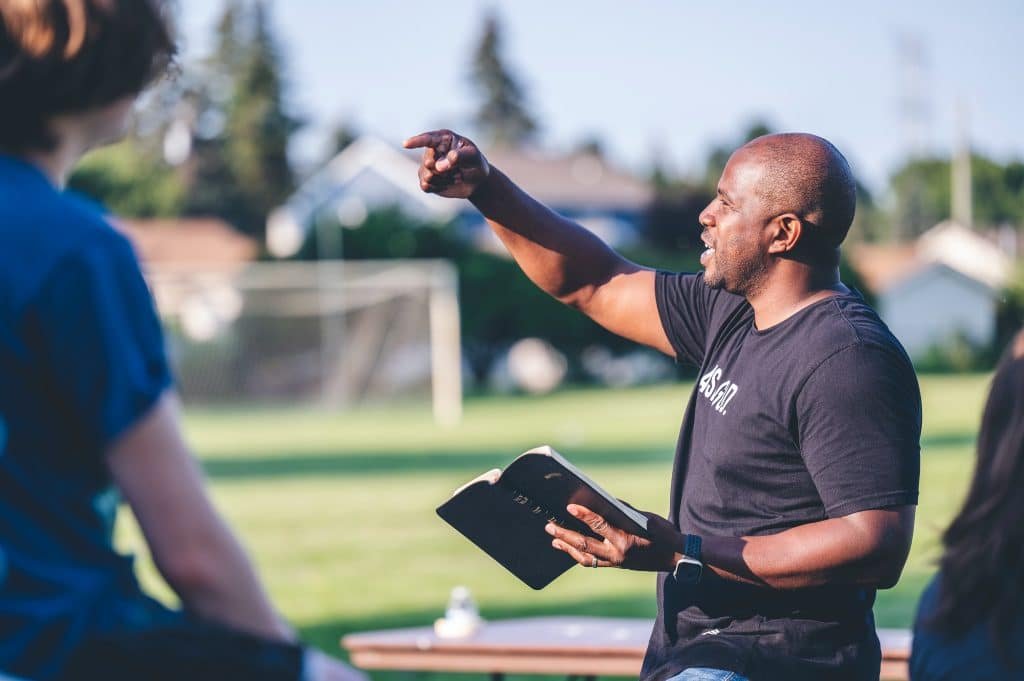Delivering a sermon is more than just conveying a message; it’s about engaging your congregation, communicating clearly, and inspiring action. Improving your sermon delivery skills can help you connect more effectively with your audience and make your message more impactful. Here are the best ways to enhance your sermon delivery skills and captivate your listeners.

Master the Art of Communication
Practice Clear Articulation
Clear articulation is essential for delivering an effective sermon. Ensure that your speech is easy to understand by practicing pronunciation and enunciation. Take your time with difficult words, and avoid rushing through your points. By speaking clearly, you help your audience follow along with your message without confusion.
Use Proper Pacing
Pacing plays a key role in keeping your congregation engaged. Avoid speaking too fast, which can make it hard for listeners to absorb your message. On the other hand, don’t speak too slowly, as this may cause your audience to lose interest. A well-balanced pace, with pauses at appropriate moments, allows your words to resonate.
Engage with Your Audience
Make Eye Contact
Eye contact is a powerful way to connect with your audience. As you deliver your sermon, make an effort to look directly at different members of the congregation. This fosters a sense of connection and helps maintain their attention. Avoid staring at your notes or a fixed spot for too long, as this can create a barrier between you and your listeners.
Incorporate Body Language
Effective body language enhances your message and keeps your audience engaged. Use gestures to emphasize key points, but be mindful not to overdo it. Your posture should be open and confident, showing that you’re fully invested in delivering your message. Moving around the stage or platform can also add energy and dynamism to your sermon delivery.
Focus on Storytelling
Use Real-Life Examples
Incorporating real-life examples in your sermons makes your message relatable and memorable. When you share personal stories or experiences, you build rapport with your audience, helping them connect with your message on a deeper level. Make sure your stories are relevant and reinforce the key points of your sermon.
Incorporate Biblical Narratives
Biblical narratives can be a powerful tool in your sermons. Weave stories from scripture into your message to illustrate key lessons and values. This not only reinforces the spiritual context of your sermon but also provides your congregation with a familiar framework to understand and apply your message.
Utilize Vocal Variation
Modulate Your Tone
One of the most effective ways to improve your sermon delivery skills is by using vocal variation. Varying your tone can emphasize certain points, making your message more engaging and impactful. A monotone delivery can quickly lose the attention of your listeners, while shifts in tone help to convey emotion and passion in your message.
Control Volume and Pitch
Pay attention to your volume and pitch when delivering your sermon. Raise your voice for emphasis when necessary, but be careful not to shout. Likewise, lowering your voice can create a sense of intimacy or seriousness, drawing your audience in. Find a balance that works for you, and practice controlling your voice to match the mood and content of your sermon.
Get Feedback and Reflect
Record Your Sermons
Recording your sermons is a great way to identify areas for improvement. By reviewing the recordings, you can assess your body language, pacing, and vocal delivery. Pay attention to moments when your energy drops or when the congregation seems less engaged, and work on refining these areas for future sermons.
Ask for Constructive Feedback
Don’t hesitate to ask trusted colleagues or members of your congregation for feedback on your sermon delivery. Constructive criticism can help you identify blind spots and areas where you can improve. Consider forming a small feedback group that can offer valuable insights into your strengths and weaknesses.
Conclusion
Enhancing your sermon delivery skills takes practice and intentional effort, but the rewards are well worth it. By focusing on clear communication, engaging with your audience, incorporating storytelling, and utilizing vocal variation, you can create a more dynamic and impactful sermon experience. Recording your sermons and seeking feedback will further refine your skills, allowing you to continually improve your delivery and inspire your congregation. With these strategies, you’ll be well-equipped to connect more deeply with your audience and effectively share your message.











